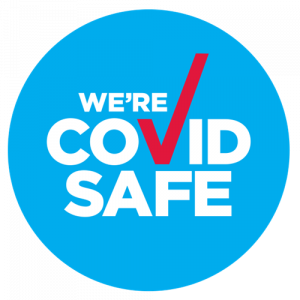What is Developmental Language Disorder?
Developmental Language Disorder (DLD) is a communication disorder that impacts how a child learns, understands, and uses language in their daily lives. DLD is very common, affecting approximately 1 in 14 children, and emerges in early childhood. This condition can be lifelong, affecting an individual’s ability to read, write, speak, and interact with others into adolescence and even adulthood; however, the severity and symptoms of DLD may change and or improve over time, particularly when diagnosed and treated early.
Common Signs of Developmental Language Disorder:
Children with a DLD may have difficulty with any of the following:
- expressing thoughts, feelings, and ideas
- organising words into sentences
- understanding and interacting with others
- following directions
- answering questions
- telling a story
- recalling information
- maintaining focus and attention
- reading and writing
What causes DLD?
DLD is NOT caused by:
- a medical condition
- lack of exposure to language
- learning multiple languages
There is no single cause for DLD, however, there is a higher risk of a child having DLD if a family member also has the disorder.
Is DLD a form of Autism Spectrum Disorder?
While this disorder shares several similarities and may occur in the presence of other types of disorders, such as ASD, ADHD, intellectual disability (ID) and hearing impairment (HI), DLD is NOT related to these disorders. DLD is a specific disorder that is diagnosed and treated independently by a Speech Pathologist. Additional disorders, like ASD, are taken into consideration but do not necessarily impact the intervention process.
How is Developmental Language Disorder diagnosed?
DLDs are diagnosed by a professional Speech Pathologist, usually around 5 years of age; however, adolescents and even adults can be diagnosed with a DLD.
Diagnosis of a DLD typically involves various assessments of the child’s expressive (speaking) and receptive (understanding) language skills. In addition to conducting a formal clinical assessment, a thorough case history is gathered, including a hearing assessment, family and medical history, and the child’s developmental milestones, such as when and what their first words were. The Speech Pathologist may also ask for observations from parents / caregivers, teachers and or close family members, to gain a greater understanding of the child’s language skills across different settings (e.g., home, school, community). These are all important factors that contribute to understanding the child’s needs and inform how therapy will be conducted.
Early diagnosis and intervention of a DLD often lead to greater outcomes – language, social, and emotional – for the child and their family.
If you would like your child to be assessed for Developmental Language Disorder, contact us today to book an assessment with one of our Speech Pathologists.
How does Developmental Language Disorder affect social development?
Language is at the centre of all social interactions, influencing how we understand and use messages (words, gestures, and body language) to communicate our thoughts feelings and ideas. Children with DLD struggle to appropriately use and interpret these messages, often leading to impaired skills necessary for social development. This is particularly true for preschool and primary school-aged children, who require these skills to:
- follow directions
- answer questions
- ask for help
- form friendships
- have conversations
- understand social “rules”, such as turn taking
As children with DLD struggle to keep up with their peers in both the classroom and playground settings, they are often perceived as “shy” / “withdrawn”, “slow learners”, or sometimes even as “naughty” children. Consequently, they are at a higher risk of social exclusion, by both their peers & their teachers.
Following complex multi-step directions, such as “tuck in your chair, put away your things, grab your hat and sit on the floor”, and instructions involving negatives words like “no”, “don’t”, “not” and “without” can be very confusing for these children. In fact, these directions are often misinterpreted, and the child may incorrectly carry out an activity or simply do nothing.
The process of learning and remembering new names, as well as being able to discuss their ideas and interest with their peers may pose as challenges for these children, impacting their ability to make new friends and interact with their classmates.





